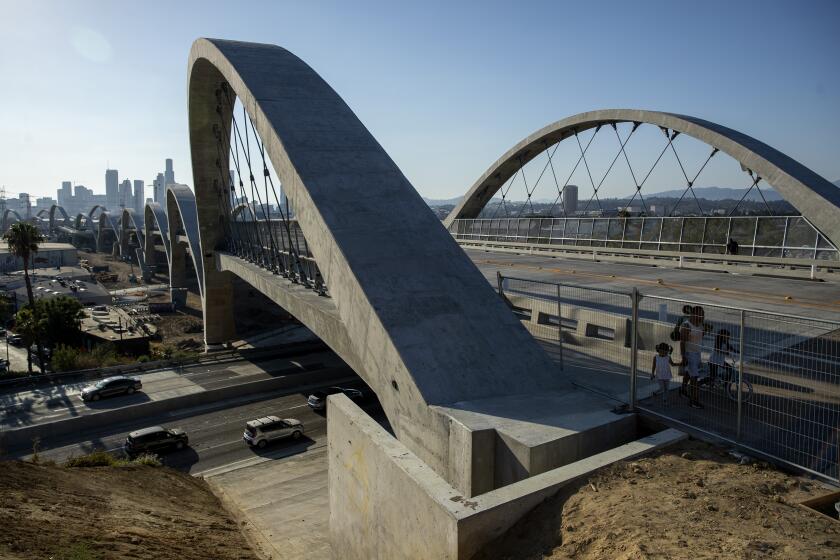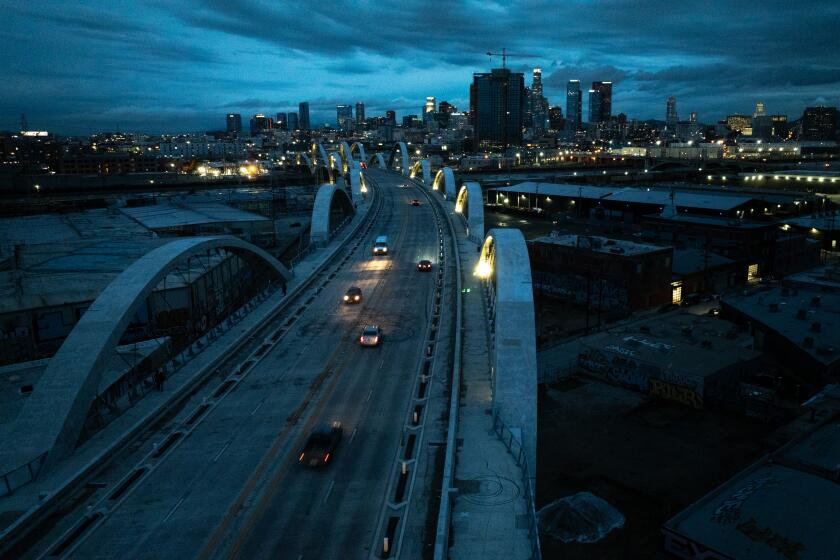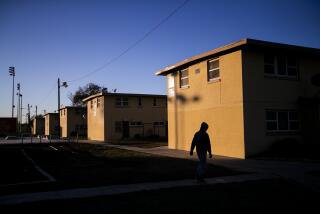‘Significant victory’: More than 80 arrested in copper wire theft crackdown
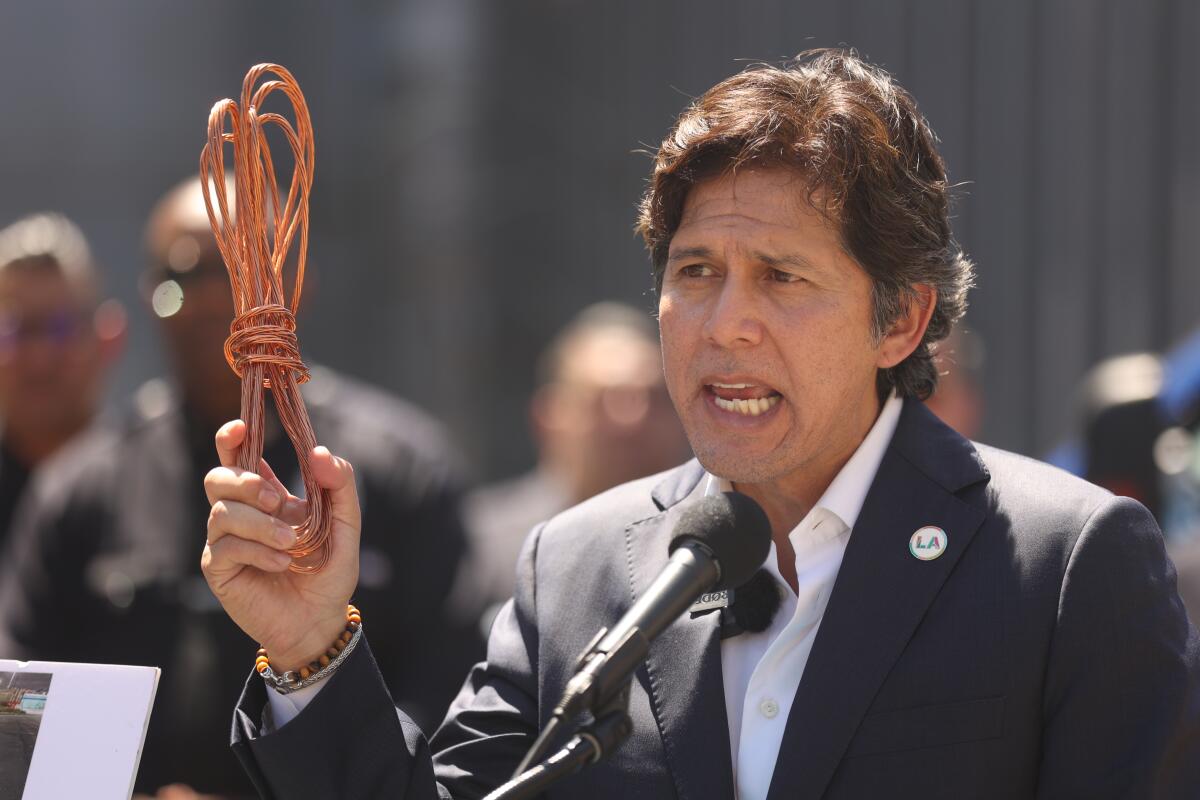
Eighty-two arrests have been made in a recent escalation to combat the “growing epidemic” of copper wire thefts, city officials announced Tuesday.
City Councilmembers Kevin de León and Traci Park attributed the arrests and 2,000 pounds of recovered wire to their copper wire task force — dubbed the heavy metal task force — adopted in late February in partnership with the Los Angeles Police Department and the Bureau of Street Lighting.
The endeavor is the “most aggressive and proactive effort” to curtail thefts of copper and telecommunications wire, which have left predominantly working-class neighborhoods without street lighting and internet service, said Peter Brown, De León’s communications director.
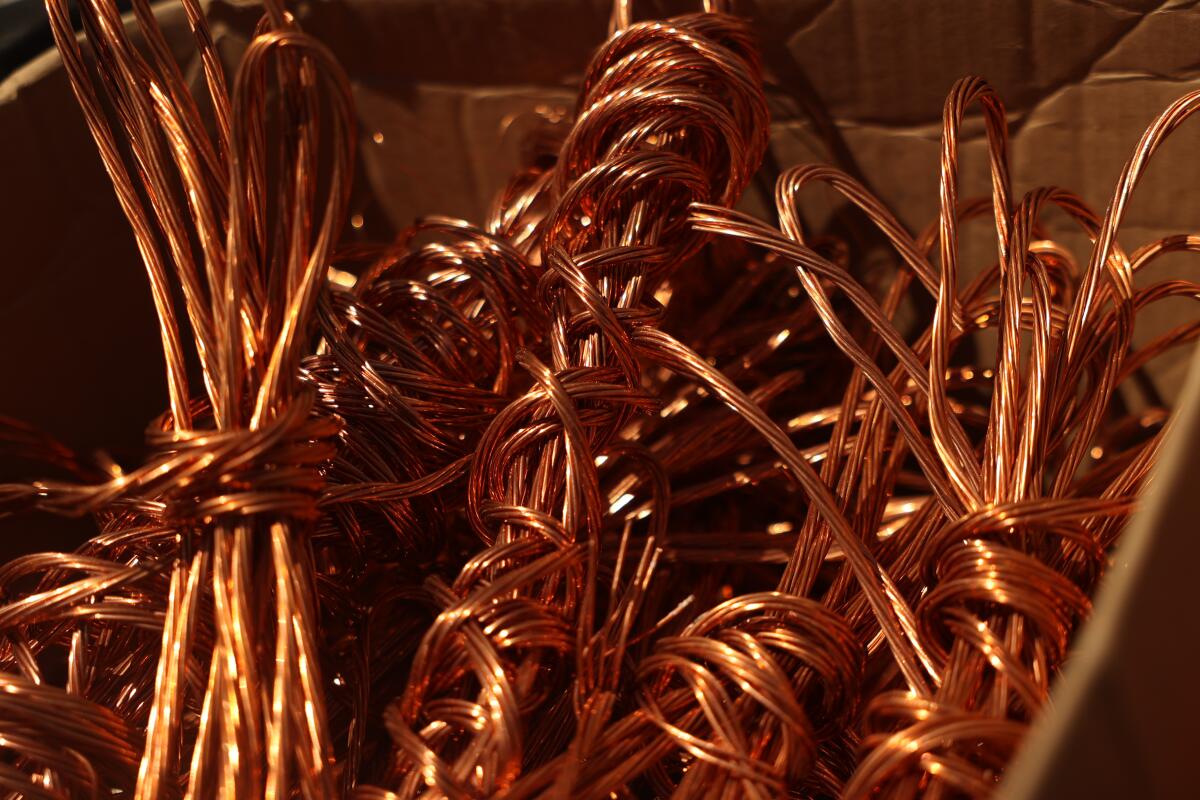
Standing next to the recovered wire — as well as the saws, bolt cutters and drills used to strip the metal from public infrastructure — De León said 60 of the 82 people arrested were being pursued on felony charges.
Among growing concern over copper wire thefts, L.A. City Councilmembers Kevin de León and Traci Park proposed a task force anchored by the LAPD.
“Our message is very clear to the criminals that are stripping the city part by part: The city of Los Angeles is no longer your ATM machine,” De León said during a news conference Tuesday, calling the results a “significant victory.”
Deputy Chief Michael Oreb of LAPD’s Central Bureau said authorities have deployed 26 task force operations, from high-visibility patrols to undercover actions. At East 16th Street near the Butte Street Junction, the site of Tuesday’s announcement, police on Monday shut down a wire-stripping group that would use the alleyway as a site for stowing the stolen material.
Oreb said the thieves would often recruit people who suffered from drug addiction to help carry out the scheme.
“They would do that as their way of funding their narcotics habit, targeting specific locations that they knew the wire was easy to obtain and bringing it back here to the group that would ultimately take it and sell the scrap,” Oreb said.
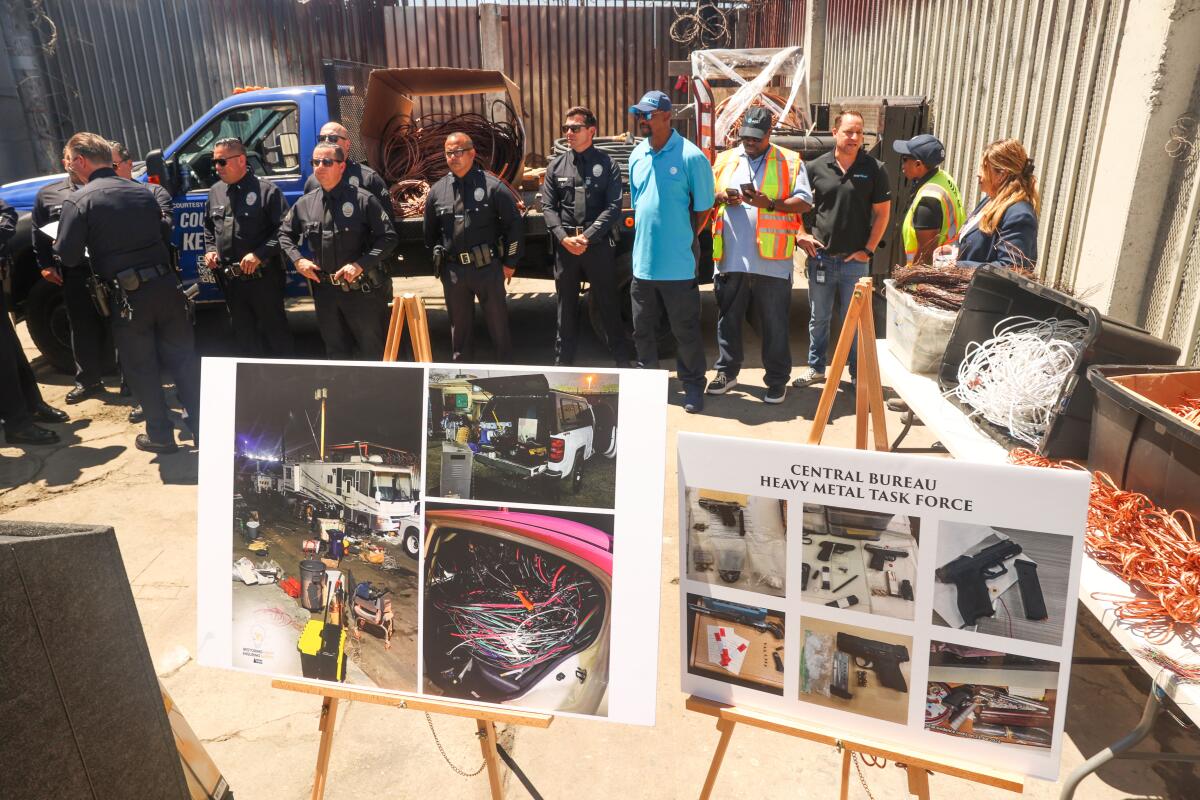
Authorities have also recovered nine firearms and are looking into “questionable activity” by scrap yards, recycling centers and other facilities that would receive the stolen wire.
Much of the stolen wire was found in RVs that Park said were being used to “provide cover and shelter to these criminal acts.”
”As we struggle here in Los Angeles with a very real homeless emergency, it is beyond perverse that copper wire thieves are taking advantage of the situation to use RVs to house and advance their crimes,” she said.
Both Park and De León stressed that copper wire theft was not a “victimless crime,” challenging sentiments brought up in a February City Council meeting when the task force was put to a vote.
The 6th Street Viaduct’s 10 pairs of arches are not lit due to copper theft of the wiring that powers the LEDs on the bridge that connects downtown L.A. to the Eastside.
Councilmembers Eunisses Hernandez and Hugo Soto-Martínez voted against the motion — which passed 13 to 2 — stating there should be more of an emphasis on preventive than punitive efforts.
The task force, which was modified “due to the theft of items beyond copper wire,” will be boosted by an additional $200,000 from De León’s district, he said Tuesday.
De León and Park also introduced two motions Tuesday to continue their efforts, one of which instructed the Bureau of Street Lighting to brand its copper wire as city property.
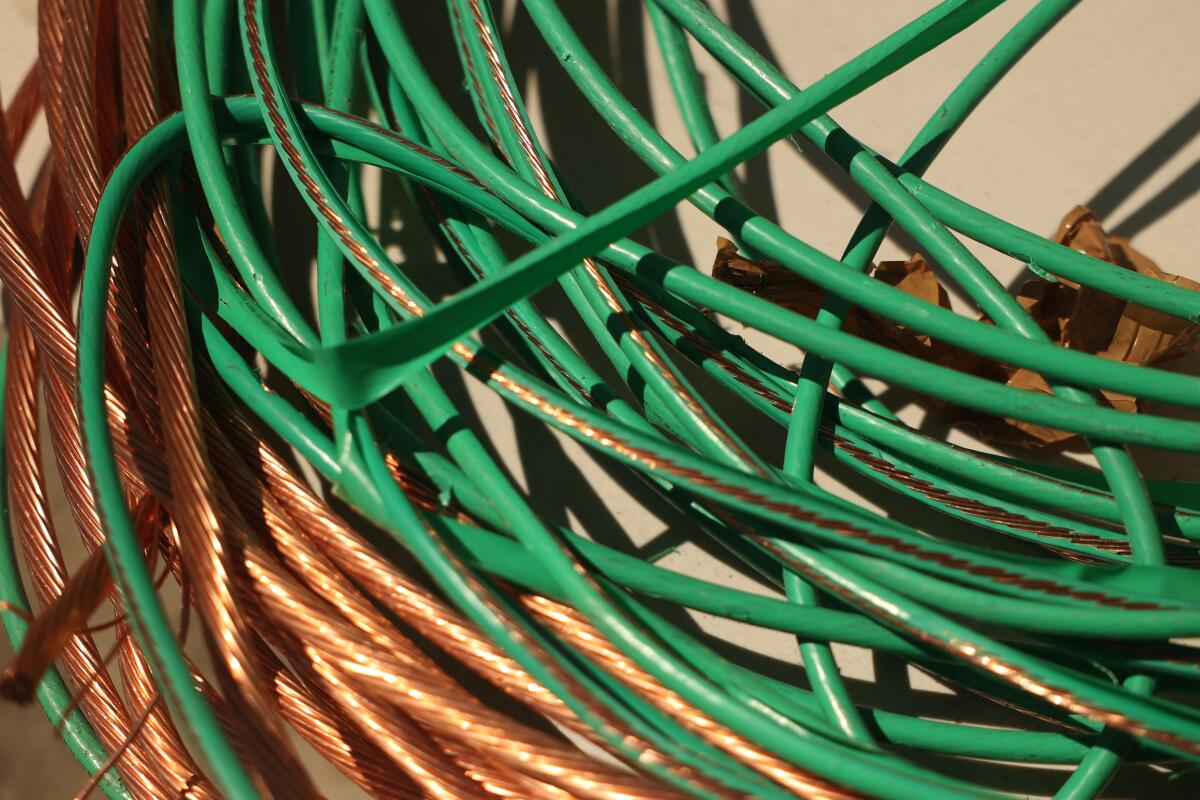
The other motion requests that City Atty. Hydee Feldstein Soto draft an ordinance prohibiting the possession of telecommunications cable by any individual or business unaffiliated with telecommunications companies.
The cables are stolen and burned or melted to expose copper wires, which are then sold to metal recyclers, according to the motion, leaving communities without data services.
“We’re trying to send a message out there — think twice, because if we do capture you with [stolen wires], you’re going to get in big trouble,” De León said.
More to Read
Sign up for Essential California
The most important California stories and recommendations in your inbox every morning.
You may occasionally receive promotional content from the Los Angeles Times.
